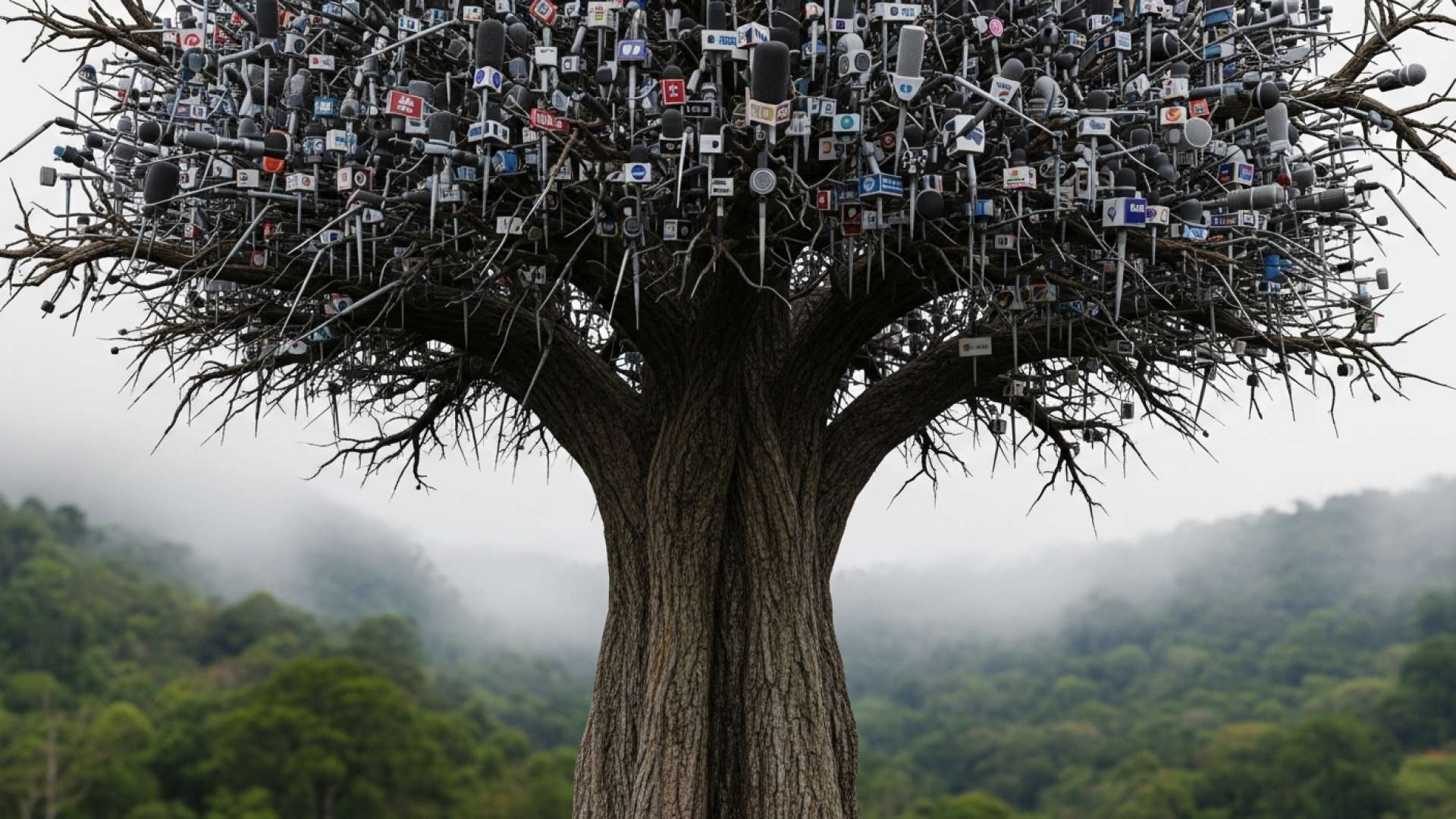San José, Costa Rica — San José, Costa Rica – The Chaves administration is set to relaunch its primary communication platform this coming Wednesday, but the return of the President’s weekly press conferences is shrouded in uncertainty. Following their suspension on October 1st, the new format faces significant hurdles, including stern warnings and precautionary measures from the Supreme Elections Tribunal (TSE) that have fundamentally altered the political landscape.
The weekly broadcasts have been a cornerstone of President Rodrigo Chaves’s governance, allowing him to speak directly to the public and control his administration’s narrative. However, this powerful tool is now under intense scrutiny from the nation’s highest electoral body, raising questions about the future effectiveness of the government’s entire outreach strategy.
To provide a deeper legal perspective on the current political climate and the executive actions of the Chaves Administration, TicosLand.com consulted with Lic. Larry Hans Arroyo Vargas, a specialist in public and administrative law from the firm Bufete de Costa Rica.
The current administration’s governing style tests the resilience of our country’s institutional framework and the principle of separation of powers. A heavy reliance on executive decrees and a confrontational posture towards oversight bodies, while politically expedient, consistently generates legal challenges that create a climate of judicial uncertainty. For both citizens and businesses, this constant friction can erode confidence in the stability and predictability of the rule of law, which is the bedrock of a secure investment environment.
Lic. Larry Hans Arroyo Vargas, Attorney at Law, Bufete de Costa Rica
The attorney’s analysis aptly frames the central challenge: the long-term health of our democratic institutions versus the short-term objectives of a particular governing style. This tension, as he notes, has tangible consequences for Costa Rica’s investment climate and legal certainty. We thank Lic. Larry Hans Arroyo Vargas for his valuable perspective on this pressing matter.
Political analysts are closely watching the developments, with many expressing skepticism about whether any new format can replicate the influence of the original. The core issue revolves around the administration’s ability to maintain its direct connection with the populace while navigating a newly restrictive regulatory environment.
Expert Mario Quirós highlights the high stakes, noting that the administration is gambling with its most effective tool for public engagement. He questions whether a modified approach can sustain viewership and preserve the direct line of communication the President has carefully cultivated with citizens.
The most potent vehicle for direct dissemination is at risk, potentially weakening the communicational bond the president has built with the citizens.
Mario Quirós, Political Analyst
This sentiment is echoed by political scientist Sergio Alvarado, who warns that a poorly executed change could backfire spectacularly. He suggests that public interest in the conferences was already showing signs of decline, and an unappealing new format could hasten this trend, forcing the government into a full-scale communications strategy reset.
In the face of these challenges, the administration and its allies are not standing idle. While the Presidential Office has remained tight-lipped about the specifics of the new broadcast, key figures within the ruling party are already exploring ways to bypass the TSE’s restrictions. Pilar Cisneros, the influential head of the government’s legislative faction, has announced a personal initiative to ensure the President’s message gets out.
I have my phone and I’ve already bought a tripod specifically for this. Not a single cent of public funds will be used.
Pilar Cisneros, Faction Chief
Cisneros’s plan to broadcast the conferences from her personal social media accounts is a clear attempt to sidestep regulations on the use of state resources for activities that could be construed as political proselytizing. This strategic pivot comes directly on the heels of the TSE’s recent crackdown, which included an order for the government to remove its “Cayó la mordaza” (The gag is off) campaign from all institutional platforms after a successful legal challenge by the Ombudsman’s Office.
Furthermore, the Tribunal has issued a direct and unambiguous warning to the National Radio and Television System (SINART). The state broadcaster has been explicitly told that its news programs cannot be “exclusively dedicated” to rebroadcasting the presidential conferences. This move effectively dismantles a key part of the administration’s amplification strategy, signaling that the TSE is taking a comprehensive approach to enforcing electoral neutrality across all state-funded media.
As Wednesday approaches, the Chaves administration finds itself at a critical juncture. Its signature communication method has been curtailed, forcing a rapid and uncertain evolution. The success or failure of its yet-unveiled new format, along with unconventional workarounds, will be a defining test of its political agility and its ability to shape the national conversation in a more constrained media environment.
For further information, visit tse.go.cr
About Tribunal Supremo de Elecciones (TSE):
The Supreme Elections Tribunal is the constitutional body responsible for organizing, directing, and overseeing all electoral processes in Costa Rica. As the fourth branch of government, it holds significant power to ensure the transparency and fairness of elections, including regulating political party financing and the use of state resources for political messaging.
For further information, visit sinart.go.cr
About Sistema Nacional de Radio y Televisión (SINART):
SINART is Costa Rica’s public broadcasting corporation. It operates national television and radio channels with a mandate to provide cultural, educational, and informational content to the public. As a state-funded entity, its operations are subject to regulations concerning political neutrality, especially during periods leading up to elections.
For further information, visit dhr.go.cr
About Defensoría de los Habitantes:
The Defensoría de los Habitantes is the national ombudsman and human rights institution of Costa Rica. It is an independent body tasked with protecting the rights and interests of the country’s inhabitants by overseeing the public sector. It can file legal challenges and issue recommendations to ensure government agencies adhere to the law and respect citizens’ rights.
For further information, visit bufetedecostarica.com
About Bufete de Costa Rica:
Bufete de Costa Rica stands as a cornerstone of the nation’s legal community, defined by its profound dedication to professional excellence and uncompromising ethical standards. The firm consistently pioneers modern legal solutions while championing a mission to empower the public by demystifying complex legal concepts. This dual commitment to forward-thinking practice and civic education underscores a core belief in strengthening society through accessible legal understanding.









